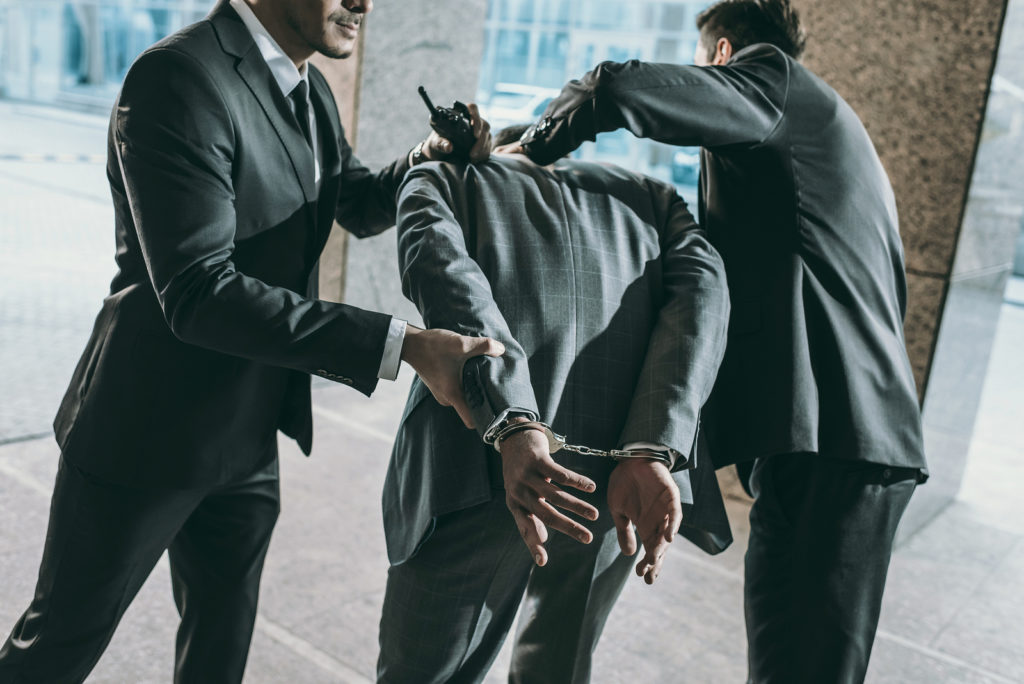May 31, 2018 | Civil Rights Law
The Mile High City has a lot to offer. In Denver alone, you can find cultural attractions, top-chef restaurants, craft brewers and distillers, world-class entertainment (like the Red Rocks Park & Amphitheater) and museums. There are even more great attractions and events outside of the city, in places like Boulder and Aurora. Numerous historical sites give you a sense of where Denver has been, and where it’s going.

Diverse Denver
But it’s Denver’s diversity that makes it the fun, vibrant multicultural place to be in the West. The 2015 census shows that 31% of the city is now Hispanic and 10% African-American, along with a strong Asian community. It’s also pet-friendly, with great places to walk your pet and adventures where you can take them with you.
Since Denver has long been a meeting and gathering place for people from different cultures and backgrounds, it’s become an accepting place for the LGBTQ community. By the 1980’s, LGBTQ became established as not only a thriving community, but politically active as well. Gay-friendly neighborhoods, businesses and annual events like Denver PrideFest (one of the biggest in the US) and the Rocky Mountain Regional Gay Rodeo make the city one of the top places for the LGBTQ community to live and work.
Green Denver
Our city leads the way in eco-friendly “green” initiatives. We’re not only going green, we live green. The City’s “Green Fleet” leads the way with 43% of city vehicles that use alternative power (electric, CNG, biodiesel and propane.) For more than 10 years, two cab companies also drive hybrid vehicles (Metro Taxi and Yellow Cab.) GreenPrint Denver is a visionary energy management and efficiency plan that includes goals for cleaner water, land and air.
Don’t want to drive? You have lots of greener alternatives to get around. Denver’s Regional Transit District offer bus rides, alternatives for people with mobility limitations and free rides for active duty military. Pedicabs, trains, scooter tours and bike sharing are all available for traveling, and the free MallRide (using hybrid vehicles) can take you all around the downtown area.
Plans for Denver’s Pepsi Center to become 100% green include operating 100% on renewable wind and solar power, a hybrid parking area and extensive recycling facilities. Tree planting and recycling are also some of Denver’s best initiatives to continue making the city greener.
Denver discrimination
Civil rights violations can take many forms. The City of Aurora recently paid out nearly a half-million dollars to black firefighters after they discovered a pattern of discrimination. The department dismissed minorities at a higher rate than white firefighters.
LGBTQ citizens have also been the target of discrimination and civil rights violations.
For all our forward-thinking and planning, the city of Denver is not without problems, especially in the area of civil rights and discrimination. Issues like wrongful arrest, police misconduct, employment discrimination and other civil rights violations are, unfortunately, as common as a cowboy hat in Colorado. The state does have an active Civil Rights Commission, and has bipartisan support to protect the rights of citizens. But civil rights abuses and violations continue to be a large part of the social justice movement in Denver.
For instance, prisoners who are subjected to neglect or abuse by prison personnel have had their rights violated under the Eighth Amendment. But who might speak up for them, other than a civil rights attorney? LGBTQ prisoners, particularly transgenders, are particularly at risk for abuse and discrimination.
The American Civil Liberties Union is also aware of police misconduct and brutality levied against citizens, as well as multiple cases of excessive force without cause. The ACLU offers free online resources to help you understand your rights and know what to do if your rights have been violated.
What do you do?
Don’t let unfair discrimination or any municipal authority step on the constitutional rights you have. A civil rights attorney will defend you in court and fight for your rights, and if necessary, clear your name. If you or a loved one has suffered a civil rights violation at the hands of police, in your place of employment, by the judicial system, or in any other fashion, call the Civil Rights Litigation Group at (720) 515-6165 or use our online contact form. Schedule your free consultation with a Denver discrimination attorney today.
May 1, 2018 | Civil Rights Law
Dealing with the police can be frightening — especially if you’ve done nothing wrong. If that experience ends up in a false arrest (also called wrongful arrest), can you fight it? Yes.
Colorado is known to be one of the top states for civil rights violations, including false arrests. It’s usually an unpleasant surprise when it happens, so be on guard if it does.

What is a false arrest?
A false arrest is when anyone is unlawfully restrained and loses his or her freedom of movement. This means that when someone holds you against your will, and/or you are taken into custody without any legal justification or consent. It’s an intentional tort, meaning that the individual intended to deprive you of your freedom of movement.
This can happen not only with police officers but shop owners and managers who suspect shoplifting. If someone believes you’ve been shoplifting, they may prevent you from leaving and hold you until the police arrive.
What you have to prove
If you are the victim of a false arrest, your Fourth Amendment Rights have been violated. How do you know if they were? If you are going to court, you’ll have to prove:
- That the confinement was intentional by the defendant (the person you are suing)
- That you were conscious of the confinement (you knew you were being unlawfully detained)
- That you didn’t consent to the confinement
- Whether the arrest was “privileged,” or legally justifiable, such as a warrant for arrest. The catch-all term probable cause is harder to prove, and a defense against false arrest.
Finding an attorney who is experienced with civil rights violation cases in Denver can investigate your case, build your defense and represent you in court to defend you against a false arrest.
What to do if it happens
Even if you are being falsely arrested, resisting arrest is a second charge, and you can be charged and jailed for that. In some places, resisting a false or wrongful arrest is legal, but you can still be arrested for that.
The ACLU offers information if you find yourself falsely arrested:
- Don’t resist arrest, even a false one. You’ll risk a second charge that’s genuine
- You will be required to give your name and address to the arresting officer, but nothing else without a lawyer present
- You should always refuse a search without a warrant; should an officer state that he or she can get one, allow them to do so
- Exercise your right to remain silent. You do not have to answer any questions beyond your without an attorney present; just ask for one
- Get the officer’s name and badge number, write it down along with the date, time, witnesses names and contact information and other pertinent information to the case
- Keep records of all conversations, letters and anything else related to the case.
- Find an attorney skilled in civil rights violations as soon as you can, and defend yourself
Bottom line: don’t resist arrest, don’t answer any questions you’re not required to, and insist on having an attorney present when speaking to the police for any reason. Bad as the situation is, you’ll have the chance to defend yourself in court, prove the invalidity of the arrest, and clear your name.
Don’t allow injustice to continue!
False arrests can happen anywhere, and false accusations can ruin your life. If you’re the victim of a false arrest, or your civil rights have otherwise been violated, an experienced civil rights attorney will fight for your rights. While your first thought may be to call a criminal defense lawyer, remember, if you haven’t committed a crime, and your civil rights are at stake.
Call the Civil Rights Litigation Group at (720) 515-6165, or use our online contact form, to schedule your free consultation with us today. We’ll fight to help you clear your name against false arrests and other overreaching actions by police.
Mar 26, 2018 | Civil Rights Law
The First Amendment Defense Act (FADA) was introduced in 2016 in response to numerous cases of individuals and businesses being legally sanctioned (including steep fines) for declining to participate in same-sex weddings and related activities. Some call it needed, some call it unconstitutional, with staunch opponents claiming it will dissolve all rights currently available to LGBT individuals.

The bill was introduced into the House of Representatives on 6/17/2015 (H.R. 2802) by Rep. Raul Labrador (R-ID). On the same day, it was referred to two committees, the House Ways & Means and House Oversight and Government Reform, but has not yet been reviewed or considered by either one. Even with 172 co-sponsors, this bill has not actually gone anywhere since its introduction. The same bill (as S.1598) was introduced into the Senate by Senator Mike Lee (R-UT) and has 37 cosponsors there.
Both senators, in response to criticism, updated both versions of the bill and put them on their websites, but haven’t introduced them into Congress. For the time being, the First Amendment Defense Act isn’t going anywhere.
Many defendants of the LGBT community claim that FADA will not only roll back civil rights for them but also allow religious discrimination against them, just for being gay. But does it?
What the First Amendment means
The actual First Amendment says:
Congress shall make no law respecting an establishment of religion, or prohibiting the free exercise thereof; or abridging the freedom of speech, or of the press; or the right of the people peaceably to assemble, and to petition the Government for a redress of grievances.
What it means seems to always be up for interpretation, and despite multiple Supreme Court decisions, it’s not always the same. But in essence, the First Amendment gives American citizens the right to free speech. It was created after laws in the British Commonwealth allowed members of minority parties to be jailed for speaking out. The First Amendment allowed political dissenters to be free from the same fate in the newly created United States.
It’s important to note that not all speech is free speech under the First Amendment. The Supreme Court has identified areas that, under certain circumstances, can be restricted:
- Speech that incites illegal activity and subversive speech
- Fighting words
- Obscenity and Pornography
- Commercial speech
- Symbolic expression
Freedom of the Press
This part of the First Amendment permits the free distribution of information, ideas, and opinions without constraint, prosecution and interference from the government. There are some restrictions, including things like defamation. Freedom of the press has expanded in recent years to include bloggers. However, bloggers can still be held liable for copyright and/or trademark infringement and defamation.
Freedom of Religion
Born out of the heavy-handed influence by the Anglican Church in England, Thomas Jefferson sought to keep religious over-reach out of the government in the new colonies. He opposed a church’s influence and interference in governmental affairs, and the establishment of a “national religion.” While the high courts continue to debate how it works, this clause establishes the rights of each individual to worship the faith they prefer and as they see fit.
What the First Amendment Defense Act does
So how would the First Amendment Defense Act affect a civil rights case? While it’s currently still just a bill stalled in a committee, the short version is, “To prevent discriminatory treatment of any person on the basis of views held with respect to marriage.” It’s aimed at protecting people based on their religious beliefs when those beliefs conflict with a client or customer in regards to marriage. The bill’s summary states that it would prohibit the federal government from taking action against a person:
“on the basis that such person believes or acts in accordance with a religious belief or moral conviction that: (1) marriage is or should be recognized as the union of one man and one woman, or (2) sexual relations are properly reserved to such a marriage.“
The bill was created in response to a number of Christian businesses who declined to provide various wedding-related services to same-sex couples. The most famous of these was in Oregon, involving a bakery called Sweet Cakes By Melissa, and two women who had patronized the bakery previously. When the owner’s husband discovered that the wedding cake was intended for a same-sex wedding, he informed them that they would not be able to make that cake, citing religious beliefs. The couple brought legal action in the state of Oregon and won. Since then, the bakery has been fined $135,000 and closed its doors. Other businesses in similar circumstances have been fined, sued or otherwise sanctioned.
The First Amendment Defense Act gives businesses federal protection to businesses and religious organization decline a customer’s business or requests based on their religious beliefs. The business would be neither persecuted nor prosecuted.
How does the First Amendment Defense Act affect a civil rights case?
Opinions differ, but it also depends on what side you’re on.
Authors and supporters of FADA believe it will allow businesses and religious organizations (including religious-based businesses such as Catholic colleges and hospitals) to operate in accordance to their beliefs free from recrimination. In the many cases of small, Christian businesses whose owners disagree with same-sex marriage, it gives them an “out,” if they so choose, allowing them to decline the business without fear of government sanctions or harassment.
The First Amendment Defense Act would, in theory, protect the civil rights of individuals who have expressed belief in traditional marriage. It would also allow state clerks to recuse themselves from issuing licenses for same-sex marriage if they desire, as well as prevent job loss after voicing discontent outside of their work environment. The bill is designed as a balance to protect religious liberty while also respecting the rights of the LGBT community.
Opponents believe that FADA will allow religious organizations and businesses to openly discriminate against the LGBT community without retribution. They also believe that FADA would undermine the government’s ability to enforce federal protections for LGBT individuals, and all anyone would have to invoke “marriage beliefs” to be immune from prosecution. The ACLU lists in this fact sheet that FADA would open up additional discrimination against single mothers and unmarried straight couples as well. By allowing certain types of discrimination to go unpunished, it’s possible that same-sex couples could be denied things such as housing, education, health insurance and medical care (including the right to utilize the Family Medical Leave Act for an ill spouse.)
At this point, however, the First Amendment Defense Act is still a bill that’s stalled in committee and is not the law of the land.
We defend your civil rights
If you’ve been discriminated against for any reason, call the Civil Rights Litigation Group in Denver at (720) 515-6165 for a free consultation. We’re experienced in helping people just like you fight back against denial of your civil rights. We’ll review your case, help you file your complaint, and represent you in court when the time comes.
Mar 12, 2018 | Civil Rights Law
There is a difference between detaining someone using the authority of law and merely asking questions. Any
police officer may ask any free person questions in a voluntary manner. That is called a consensual encounter. Your rights during a consensual encounter are generally to decline to answer questions and/or walk away if you wish. If you have not been detained by some objective use of an
officer’s authority (official commands, use of force, physical seizure, etc.), you are likely free to leave. However, if an officer’s questions are accompanied by obligatory commands, threats of force, arrest, or other types of seizure, such that a reasonable person would not feel free to leave, the encounter generally turns into a detention and/or arrest.

A police officer must have reasonable suspicion to detain for a limited timeframe during a Terry stop/detention and must have probable cause to make an arrest. That is why the ACLU and other know your rights groups teach that when you are in an encounter with an officer, you should always inquire – am I under arrest? Am I being detained? Am I free to leave? If the officer answers yes to the first two questions or no to the third, you know the officer must possess articulable facts that would be sufficient for the type of seizure he/she has placed you in.
In all circumstances that a
police officer uses their official authority to detain/arrest you, you should comply with commands and later let your
lawyer argue whether the officer had sufficient information to establish the proof necessary for the type of seizure at issue.
Feb 7, 2018 | Civil Rights Law, Constitutional Rights
A wrongful arrest (also called “false arrest”) can happen to anyone at any time. You may look like someone the police are looking for, you may have been misidentified by someone (intentionally or unintentionally) or just may be in the wrong place at the wrong time. An arrest can be embarrassing, particularly if you’re not guilty. But if it happens, here’s what you need to prove you that should not have been arrested.

Wrongful arrest is a violation of your Fourth Amendment protections against unlawful search and seizures. Both private citizens and law enforcement personnel can commit a wrongful arrest. You can also sue for damages by way of a civil lawsuit.
First: don’t resist an arrest
Even if you know you’re being wrongfully arrested, resisting arrest is also a crime. It may be legal to resist a wrongful arrest, but you can still be charged. You’ll still have the right to speak to an attorney, and the right to a fair trial to prove your innocence. Always be polite, and never threaten a law enforcement officer or another individual during the arrest process.
Your right to remain silent
Exercise this right, especially in the case of a wrongful arrest. Make sure you ask for and have an attorney available whenever you speak to the police. Don’t wait for them to read you the “Miranda Warning,” since anything you say at the time of arrest can also be used against you. Give no statements until you can speak to an attorney.
Decline any searches without warrants
Police have procedures they must follow when they obtain a search warrant. But if you permit a search without a warrant, your rights may not be respected. The Fourth Amendment protects you from unwarranted searches.
The “Citizen Arrest”
Private citizens can also commit a wrongful arrest by detaining you and not allowing you to leave, violating your Fourth Amendment rights. An example is a private security guard in a retail store detaining you for shoplifting without witnesses or other probable cause. If there is cause, a guard can detail you temporarily until the police arrive to take over. But detaining someone without cause becomes a wrongful arrest or false imprisonment.
The ACLU offers this guide to knowing and understanding your rights when dealing with law enforcement in the state of Colorado.
Proving wrongful arrest in court
You’ll need to make four points in your case:
- The individual in question intentionally confined or arrested you, preventing you from leaving and depriving you of your Fourth Amendment rights. This may be law enforcement or a private individual, such as a store manager or supervisor.
- That the plaintiff (you) was conscious of the confinement and understood that you were being confined, arrested and prevented from leaving.
- That the plaintiff (you) did not consent to being confined, and the arrest/confinement was done anyway.
- If the arrest was “privileged” or legally justified. This is usually when a warrant, court order, or probable cause is involved and can justify an otherwise wrongful arrest. While a warrant and a court order can make an arrest justified, probable cause is less clear and can prove that an arrest was, indeed, wrongful.
Probable Cause allows a police officer to make an arrest on someone if he or she has sufficient reason to believe at the time of the arrest that the individual has or intends to commit a crime. It does not matter if the individual is guilty of a crime — that’s addressed in court. Should an individual claim probable cause, they can use it as a defense for wrongful arrest.
Call us — we’ll fight for your rights
Wrongful arrests can happen to anyone, anytime. If you’ve been wrongfully arrested, or your civil rights have otherwise been violated, an experienced civil rights attorney will fight for your rights. Call the Civil Rights Litigation Group at (720) 515-6165. Schedule your free consultation with us today. We’ll defend you against wrongful arrests and other overreaching actions by police, and help you clear your name.
Oct 3, 2017 | Civil Rights Law, Police Misconduct
Situation #1:
A police officer has just taken you into custody. You haven’t done anything wrong, but he or she is reading your Miranda rights to you while putting you in handcuffs. Has the officer explained the charges? Do they have probable cause for arrest or is it wrongful arrest? What evidence do they have to hold you?
Situation #2:
 You’re in a shop, or somewhere out in public, and suddenly you’re not free to leave. Someone shouts, “citizens’ arrest!” Maybe there is more than one individual restricting you from leaving. You’ve done nothing wrong, but now you’ve found yourself in an arrest situation, and the police are on their way.
You’re in a shop, or somewhere out in public, and suddenly you’re not free to leave. Someone shouts, “citizens’ arrest!” Maybe there is more than one individual restricting you from leaving. You’ve done nothing wrong, but now you’ve found yourself in an arrest situation, and the police are on their way.
This scenario is typically seen in retail shops where an owner or employee believes that someone has been shoplifting. A citizen can only hold an individual until the police arrive, or to give them an opportunity to recover stolen merchandise from a suspected thief. But again, you know you’ve done nothing wrong and haven’t stolen anything.
What is a wrongful arrest?
Wrongful arrest, also called false arrest, means unlawfully confining an individual against their will by someone who does not have legal authority to do so. If there is no legal cause to hold an individual, such as a warrant for their arrest, suspicion or probable cause, the arrest can be called wrongful if they are not free to leave. While this isn’t hard-and-fast law, it covers a broad range of improper confinements.
Wrongful arrest or false arrest is an intentional tort, and is a civil rights violation. That is, the individual committing the arrest willfully intended to deprive someone of their Fourth Amendment rights, which protects you from illegal searches and seizures. While the police do make mistakes, it may be up to you as the defendant to prove that you were wronged and clear your name in court.
What next?
Wrongful arrests happen, even under the best of conditions, and will catch you unaware. Don’t let it ruin your life. What you do next can determine the final outcome, good or bad. In this situation, you should:
- Don’t resist the arrest, particularly one involving a police officer. Resisting an unlawful or wrongful arrest isn’t a good idea, even though it is legal in some places. You can still be charged with resisting arrest, even if you can prove later that the original arrest was unlawful.
- Find a civil rights attorney. Now. The sooner you get legal representation, the faster you can clear your name. He or she can help you avoid mistakes made under difficult, confusing conditions.
- Exercise your right to remain silent. An attorney should be present anytime you speak to authorities. He or she will ensure that you have proper representation, treated fairly, your rights are respected, and guide you through the process.
- Politely decline any searches that don’t come with a warrant. The police are required to follow a set of rules with a warranted search, but without one, there may not be rules.
- Keep track of all correspondence and conversations. Phone calls, emails, letters and other interactions may lead to evidence that proves your innocence.
- Pursue legal action for compensation. Your attorney can advise you on filing a civil rights lawsuit to compensate you for physical pain, mental anguish and embarrassment.
A civil rights attorney can help
A wrongful arrest brands you a criminal, and has far-reaching effects that can damage your good name. An experienced civil rights attorney can examine the facts of your case, determine if you have one, and advise you on the next steps. He or she can determine if you have a good case for wrongful arrest, and what it will take to bring disciplinary action, if the police are involved, or a civil rights lawsuit against individuals.
If you believe you’ve been wrongfully arrested, or that your civil rights have been violated, call the Civil Rights Litigation Group at (720) 515-6165. Schedule your free consultation with us today. We’ll help you fight back and help you clear your name.







 You’re in a shop, or somewhere out in public, and suddenly you’re not free to leave. Someone shouts, “citizens’ arrest!” Maybe there is more than one individual restricting you from leaving. You’ve done nothing wrong, but now you’ve found yourself in an arrest situation, and the police are on their way.
You’re in a shop, or somewhere out in public, and suddenly you’re not free to leave. Someone shouts, “citizens’ arrest!” Maybe there is more than one individual restricting you from leaving. You’ve done nothing wrong, but now you’ve found yourself in an arrest situation, and the police are on their way.